09.19.19Writing About ‘Mice and Men’: Some Examples from Our Curriculum

As many readers of this blog know we are developing a Reading curriculum. We’ve tried to be writing-intensive and to use writing to help students make sense of complex texts and ideas. I thought I’d share some examples from our unit on Of Mice and Men. These were written by Emily DiMatteo and show the range of prompts and the depths and types of thinking we’re trying to instill.
This first example is from the second day’s lesson. It’s designed to prepare students to notice and make sense of Steinbeck’s use of the passive voice. Part of our goal for students’ Close Reading of the text is for them to be able to hear how decisions like this affect meaning. First there’s a quick explanation of the passive voice:
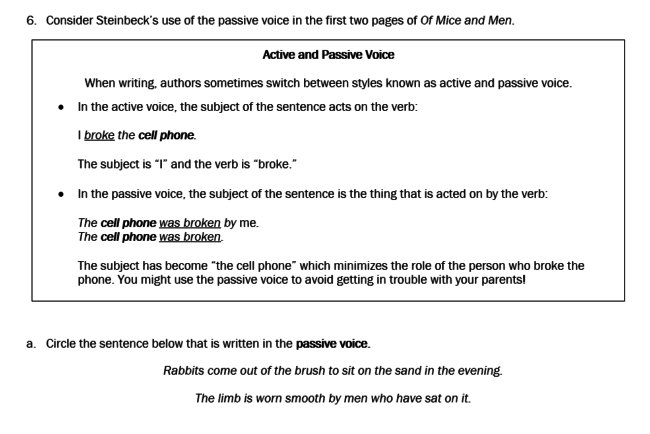
Then Emily asks students to think in writing about why Steinbeck might write in this way, specifically about the migrant workers he’s describing. The prompt is deliberately ‘formative’… that is, it uses the word ‘might’ to lower the stakes, to make it safe to use writing as a tool to think through and develop ideas and to suggest that students don’t need to know the answer already to reflect in writing. Then, you’ll notice that there’s a space for discussion notes. The teacher calls on four or five students to share their ideas and the class is asked to jot down ideas that they find useful or insightful. The goals of the discussion are to listen carefully and to learn from others. The last step is a writing prompt that asks student to revise their initial response based on what they learned from their classmates.
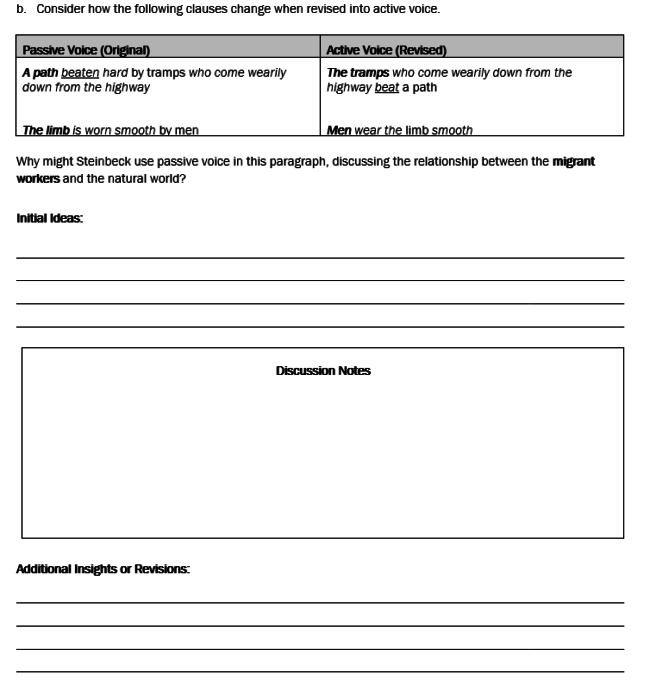
In lesson 4 Emily reminds students of a line from a piece of nonfiction they’ve read about Steinbeck and asks them to apply it to a section they are reading. They annotate for connections as they read and then reflect, formatively, again, on how this might explain something about George and Lennie’s relationship.
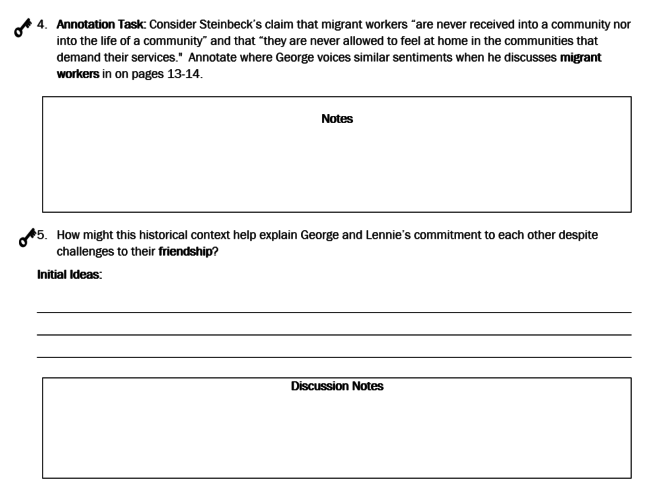
The last example is from Lesson 5. It’s by far the most challenging. The book’s use of offensive and derogatory racial terms is something that we did not think could be left un-studied. Emily found an article by a teacher describing her discussion with her students on the topic. She asks students to reflect on it on their own first and in writing, using several prompts including an adaptation of one of Judith Hochman’s writing tools, “Because, But, So” which is designed to cause students to reflect on an idea in several ways. Here the prompt is “Because, But, If” (for reasons that will hopefully be obvious). Again the writing is preliminary to a discussion but ensures the students will have had time to reflect fully and deeply before they take on a complex issue. A discussion like this is too weighty to engage without careful reflection beforehand.
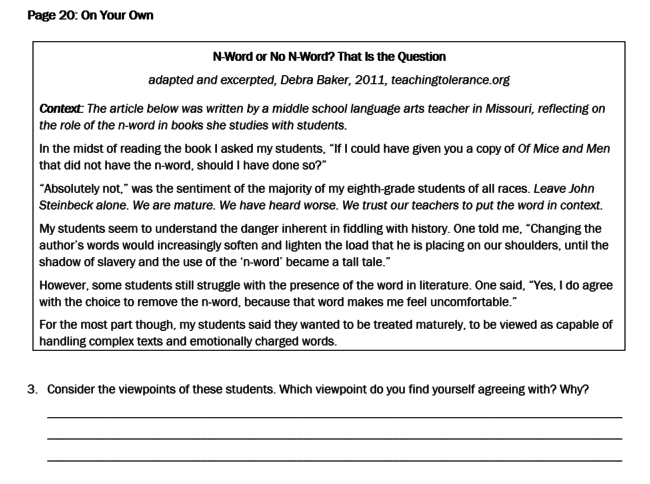
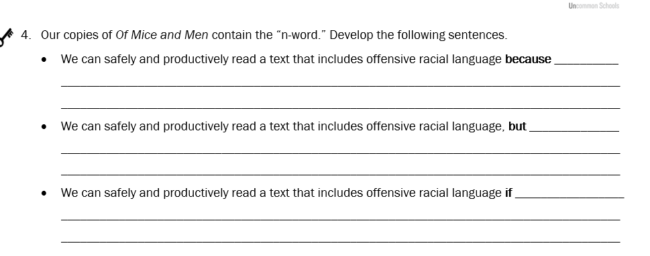
The idea is to have students write constantly as they read and for them to use writing as a thinking tool–to help them not only justify but perhaps more importantly develop their opinions about important ideas in the book. The more important and challenging the ideas, the more central we want writing to be to students’ efforts to understand them.